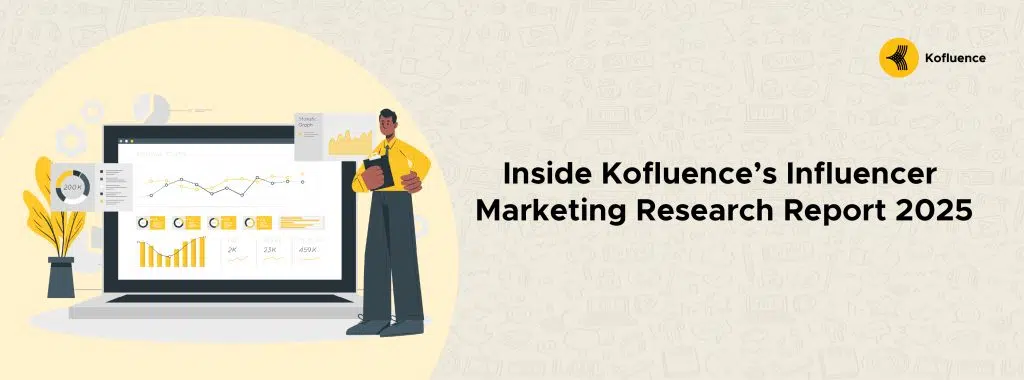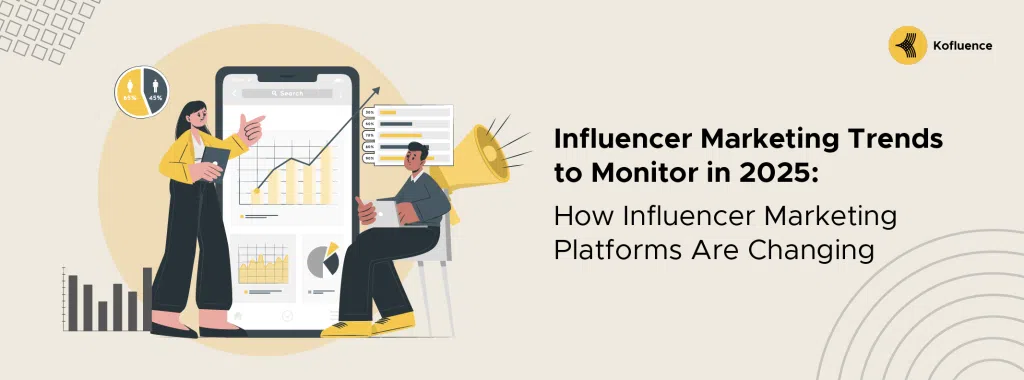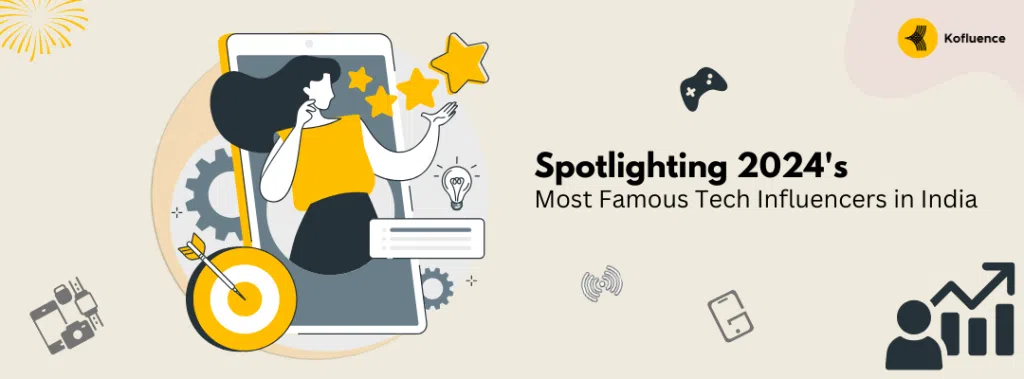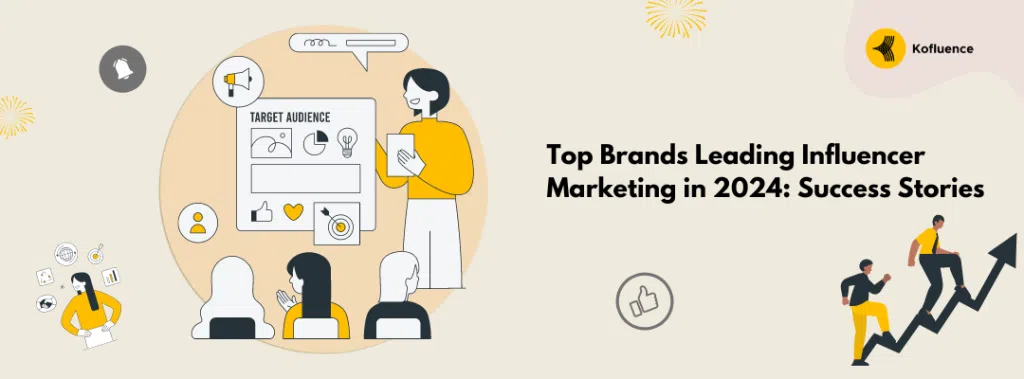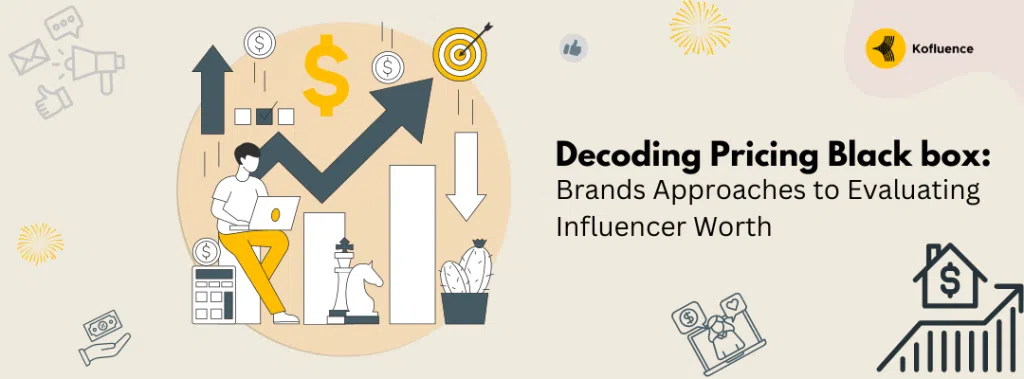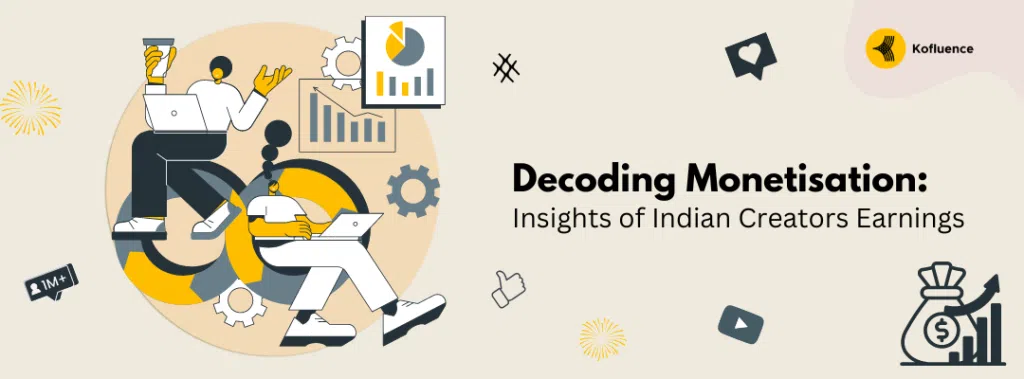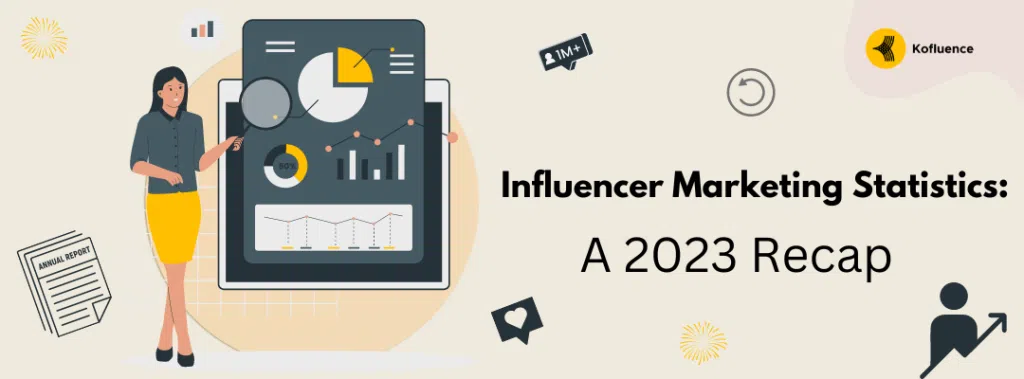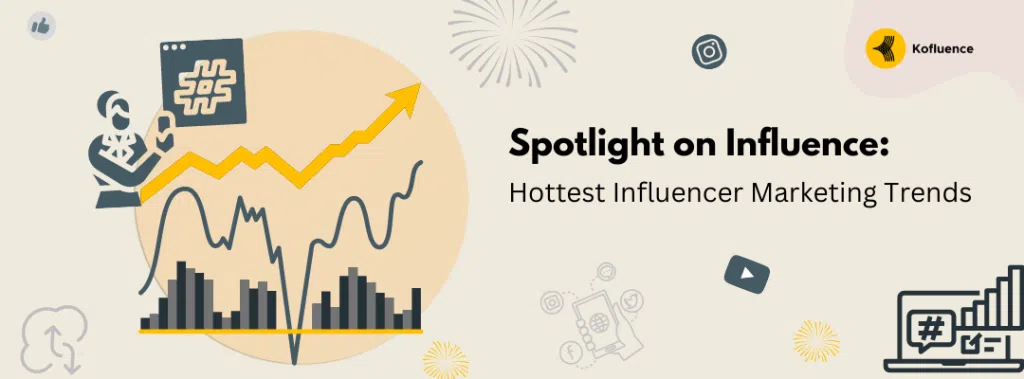Listen to Audio Blog
Table of contents:
What is financial influencers?
The Emergence of Financial Influencers in Influencer Marketing
The Soaring Popularity of Financial Influencers on Social Media Platforms
The Benefits of Partnering with Financial Influencers for Brands
The Challenges of Partnering with Financial Influencers for Brands
Best Practices for Working with Financial Influencers
Introduction
Do you ever find yourself scrolling through social media and stumbling upon a post titled “Top 5 Money Saving Tips You Need to Know Now” with thousands of likes and shares? Or maybe you’ve noticed an Instagram influencer promoting a certain financial app with a discount code in their bio. These instances are just a few examples of how the presence of financial influencers has taken the marketing world by storm. In this digital age, social media has given rise to a new generation of influencers – financial influencers.
They are individuals that have gained a significant following on social media platforms due to their expertise in finance and investment. With their loyal fanbase, financial influencers have taken on a much larger role in the influencer marketing landscape. The emergence of financial influencers has changed the perception of traditional finance, allowing for a more personal and relatable approach to financial guidance.
This shift has allowed financial institutions and brands to tap into these influencers as a means to reach niche audiences and deliver messaging in a more authentic way. But how exactly have these influencers obtained such a massive following, and why are they important to take note of in the influencer marketing space? In the following sections, we will explore the impact of influencers on social media platforms, the benefits and challenges of partnering with these influencers for brands, and best practices for working with influencers. So sit tight and get ready to learn more about the world of influencers and how they can make a significant impact in the world of marketing.
What is financial influencers?
Financial influencers are individuals with in-depth knowledge and expertise in finance-related topics that have a significant following on social media platforms. Influencers can be anyone from bloggers, YouTubers, podcasts, and social media personalities that have the potential to influence buying decisions of their audience and engage with an active and loyal fanbase. These influencers have gained credibility and trust through their consistent and valuable content, sharing insights, tips, and strategies to help their followers make informed decisions about personal finance, investing, budgeting, and more. They often provide practical advice on topics like saving for retirement, building an emergency fund, managing debt, and achieving financial goals.
The Emergence of Financial Influencers in Influencer Marketing
Introduction Being financially savvy is all the rage these days, and with the rise of social media, financial influencers have emerged as an important force in the world of influencer marketing. With their niche expertise and loyal followings, influencers provide a valuable opportunity for brands looking to reach a targeted audience. In this blog post, we’ll explore the emergence of financial influencers in influencer marketing, the benefits and challenges of working with them, and best practices for making the most of these powerful partnerships.
From budgeting and investing to debt management and retirement planning, today’s financial influencers offer a wealth of knowledge to their followers. Social media has played a major role in the emergence of influencers, as platforms like Instagram, Twitter, and TikTok have made it easier than ever for users to share their expertise and build a following. However, it’s not just the platforms themselves that have enabled the rise of financial influencers but also a broader shift in the way people consume financial information. Rather than turning to traditional financial institutions for guidance, many people now look to their peers and trusted personalities in the online space for tips and advice.
This is where fintech influencers come in – by speaking to audiences in a relatable and engaging way, they can help brands reach a targeted, engaged audience. This is especially important in an age when consumers are increasingly skeptical of traditional advertising and look for more personalized, authentic messaging from brands. Fintech influencers play a role in industries such as personal finance, investment, and fintech. They are instrumental in providing guidance, solutions, and recommendations on financial strategies, investment products, and budgeting advice, especially in areas where people might lack in-depth knowledge and expertise.
By partnering with fintech influencers, brands can tap into the trust and authenticity these influencers have built with their followers and leverage their expertise to create compelling content. However, partnering with influencers also presents some unique challenges, such as issues around compensation, disclosure, and authenticity. In the following sections of this post, we’ll take a deeper dive into both the benefits and challenges of working with influencers and outline best practices for making these partnerships a success.
The Soaring Popularity of Financial Influencers on Social Media Platforms
Are you tired of seeing the same old boring financial institutions flooding your social media timelines with their overly stiff content? Fear not, for the rise of financial influencers has arrived! These social media-savvy individuals have been shaking up the finance world and taking the digital world by storm. Wondering which social media platforms garner the highest popularity among financial influencers? Well, it’s no surprise that Instagram and Twitter take the lead. With Instagram being a highly visual platform, financial influencers are able to create visually appealing content that showcases their lifestyle while also providing valuable investment tips and advice. Twitter, on the other hand, provides financial influencers with a platform to engage with their audience and provide real-time updates on market trends and news.
But don’t count out YouTube and TikTok either, as they also provide a great space for financial influencers to reach and connect with their audience. So, what type of content do these financial influencers excel in? Anything and everything finance-related: from investing and trading tips to personal finance and budgeting advice. They’re able to take complex financial concepts and break them down in a way that’s easy to understand and relatable to their audiences. But what sets financial influencers apart from traditional financial institutions on social media? It all comes down to authenticity.
Financial influencers often share their personal experiences and struggle with money, which makes them more relatable to their audience. They also offer unbiased advice that’s not tied to any financial institution or product, which is why their followers view them as trustworthy sources for financial guidance. So, it’s no surprise that partnering with financial influencers is becoming increasingly popular for brands. By collaborating with financial influencers on sponsored content, brands are able to tap into their niche audiences and expand their reach. Working with influencers who align with their brand values can also help brands create a more authentic image and build trust with their audience.
But, as with any marketing strategy, there are challenges that come with partnering with financial influencers. Brands run the risk of negative credibility if they partner with influencers who don’t align with their brand values or who have been involved in controversial pasts. Additionally, brands often have limited control over the messaging that influencers deliver in their content. And let’s not forget the issues with compensation and disclosure. To ensure a successful partnership, brands should do their research and thoroughly vet potential influencers before partnering with them. Establishing clear objectives and guidelines can also ensure that both parties are on the same page and that the sponsored content aligns with the brand’s values.
It’s also important to have open and honest communication regarding compensation and disclosure practices. In conclusion, financial influencers have taken the finance world by storm and offer a unique perspective on finance-related content. Brands are jumping on board, but it’s important to vet potential partners and establish clear guidelines to ensure a successful partnership. With their relatable and authentic approach, financial influencers are here to stay!
What metrics or key performance indicators (KPIs) do financial influencers typically focus on when evaluating the performance of a brand?
Financial influencers typically evaluate the performance of a brand based on various metrics such as engagement rate, follower growth, conversion rate, brand awareness, and ROI. These metrics help influencers assess the impact of brand partnerships and the effectiveness of their marketing campaigns.
The engagement rate is a crucial metric that influencers consider when evaluating brand performance. It measures the level of interaction and involvement their audience has with the brand’s content, such as likes, comments, shares, and saves. A higher engagement rate indicates that the brand’s message is resonating with the influencer’s audience and generating active participation.
Follower growth is another important metric as it reflects the brand’s ability to attract and retain new followers through the influencer’s promotional efforts. A steady and consistent increase in the influencer’s follower count indicates a positive response to the brand’s offerings and content.
Conversion rate measures the effectiveness of the influencer’s promotional efforts in driving desired actions from their audience, such as clicks, sign-ups, purchases, or downloads. By tracking conversion rates, influencers can gauge how well their audience is responding to the brand’s call to action and whether the partnership is generating tangible results.
Brand awareness is another key KPI that influencers focus on. They analyze metrics like reach and impressions to understand the extent to which the brand’s message is reaching its audience. High brand awareness suggests that the influencer’s audience is being exposed to the brand’s products or services, enhancing its visibility and recognition.
The Benefits of Partnering with Financial Influencers for Brands
Financial influencers have carved a niche for themselves in the influencer marketing space, and the benefits of partnering with them for brands are becoming more apparent each day. Let’s explore some of these benefits.
Reaching niche audiences with fintech influencers: Fintech influencers have a highly engaged audience that is interested in financial topics and advice. By partnering with these influencers, brands can reach these niche audiences that may be difficult to engage otherwise. The followers of these influencers are often highly loyal and trust the influencers’ opinions and recommendations when it comes to financial products and services.
Creating brand awareness with financial influencers: Financial influencers can help brands create brand awareness and increase brand visibility. By partnering with well-known financial influencers, brands can expose their products or services to a wider audience, which can help increase brand awareness and recognition. The followers of financial influencers are often highly engaged, so partnering with these influencers can help brands create a buzz around their products or services.
Driving sales and increasing revenue with financial influencers: Financial influencers can play a significant role in driving sales and increasing revenue for brands. They can recommend products and services to their followers and encourage them to make purchases. Followers often trust the recommendations of their favorite influencers, so they may be more likely to make a purchase based on their endorsement. By partnering with influencers, brands can increase their sales and revenue while also building brand loyalty.
While partnering with influencers can offer a number of benefits for brands, there are also some challenges to consider. Brands must be careful to manage the risks associated with partnering with influencers, including the risk of negative credibility, lack of control over messaging, and compensation and disclosure issues. Despite these challenges, collaborating with financial influencers can be a profitable strategy for brands to connect with specific target audiences, establish brand recognition, and generate increased sales and revenue. By researching potential influencers, establishing clear guidelines and objectives, and measuring the success of campaigns, brands can successfully partner with these public figures to achieve their marketing goals.
.
The Challenges of Partnering with Financial Influencers for Brands
Partnering with financial influencers may seem like a no-brainer for brands looking to increase their reach and drive sales, but it comes with its own set of challenges. The risks and issues associated with influencer marketing need to be taken seriously if brands want to protect their credibility and reputation. One of the biggest challenges of partnering with influencers is the risk of negative credibility for brands. With growing awareness of influencer marketing among consumers, there is a heightened vigilance in identifying brands that endorse misleading or dubious content through influencers.
If a fintech influencer shares inaccurate information or endorses a scam, it can reflect poorly on the brands they work with, damaging their credibility and eroding consumer trust. Another challenge is the lack of control over messaging that comes with influencer partnerships. Even with clear guidelines and objectives in place, brands can’t necessarily control what an influencer says or does on social media. This lack of control can be nerve-wracking for brands that are used to carefully managing their messaging and brand image. Finally, there are compensation and disclosure issues with financial influencers that need to be considered.
It is crucial for brands to prioritize transparency when it comes to influencer partnerships, while simultaneously ensuring that influencers are compensated fairly for their valuable time and effort. Balancing compensation with disclosure requirements and adhering to regulatory guidelines can be a delicate dance. While there are certainly challenges associated with working with influencers, the benefits can be significant for brands that approach influencer marketing strategically. By conducting thorough research, setting clear expectations, and establishing ethical compensation and disclosure practices, brands can leverage influencers to expand their reach, drive sales, and build authentic connections with customers.
Best Practices for Working with Financial Influencers
Collaborating with fintech influencers presents an excellent opportunity for brands to effectively target niche audiences, enhance brand awareness, and drive sales growth. However, to make the most of these partnerships and ensure a successful influencer marketing campaign, there are some best practices that brands should follow. Firstly, researching potential influencers is the key. Don’t just look at their follower count, but instead, evaluate their engagement rate, content quality, and overall reputation within the financial industry.
Remember, you want an influencer who resonates with your brand and target audience. After identifying a suitable influencer, it is essential to establish precise campaign objectives and guidelines. Clearly communicate your desired outcomes and the type of content you expect the influencer to create, and any messaging or branding guidelines to follow. Proper communication ensures that both parties are on the same page and eliminates any confusion. Next, compensation and disclosure practices should be discussed and agreed upon. In the interest of transparency, it’s essential to disclose sponsored content correctly, and influencers must socialize this to their audience.
And lastly, measuring the success of the campaign is vital. Determine what metrics you will use to measure performance, such as engagement rate, click-through rate, or ROI. By leveraging these metrics, you can evaluate the impact of the influencer campaign and refine your strategy for upcoming campaigns. This data-driven approach will allow you to make informed decisions and optimize your future influencer marketing initiatives. Remember, working with influencers can have its challenges, but if done correctly, it can yield desired results. Follow the best practices mentioned above to ensure that you are getting the most out of your partnerships with influencers.
Conclusion
In conclusion, partnering with financial influencers can provide a plethora of benefits for brands, including reaching niche audiences, creating brand awareness, and driving sales. However, there are also challenges associated with working with influencers, such as the risk of negative credibility and lack of control over messaging. To overcome these challenges, it’s crucial that brands research potential influencers, establish clear objectives and guidelines, and adhere to compensation and disclosure practices. It is crucial to prioritize the measurement of influencer marketing campaign success. The exponential rise in popularity of influencers on social media platforms has firmly established their position within the realm of influencer marketing. Their ability to excel in creating authentic content that resonates with their audience is unparalleled. Brands must recognize this trend and look to partner with influencers for their marketing campaigns.
At Kofluence, we understand the importance of influencer marketing and the role that influencers play in it. Our platform provides a transparent, streamlined process for partnering with top-tier influencers, ensuring that brands can achieve their marketing goals effectively. Sign up with Kofluence today to start leveraging the power of influencers in your marketing campaigns.
If you found this blog to be helpful browse through our website for other blogs on similar topics or get in touch with us for your next influencer marketing campaign! Download the Kofluence app and find relevant campaigns catering to your target audience! To opt-in, download the Kofluence app here: iOS users, and Android users.


